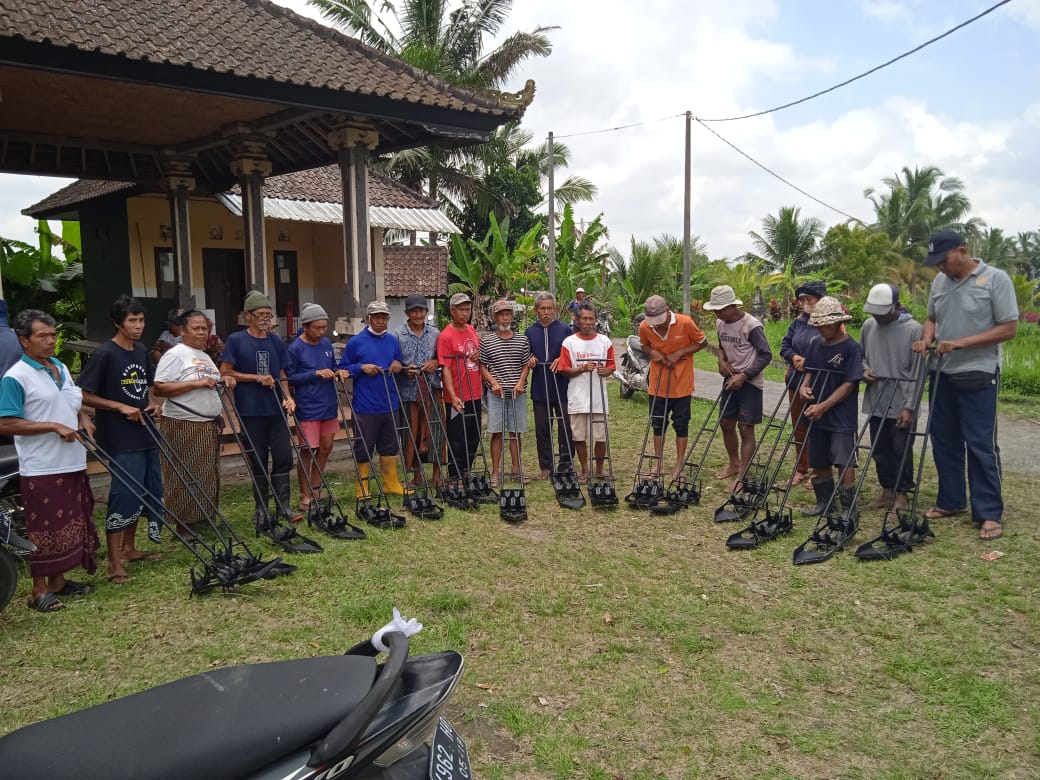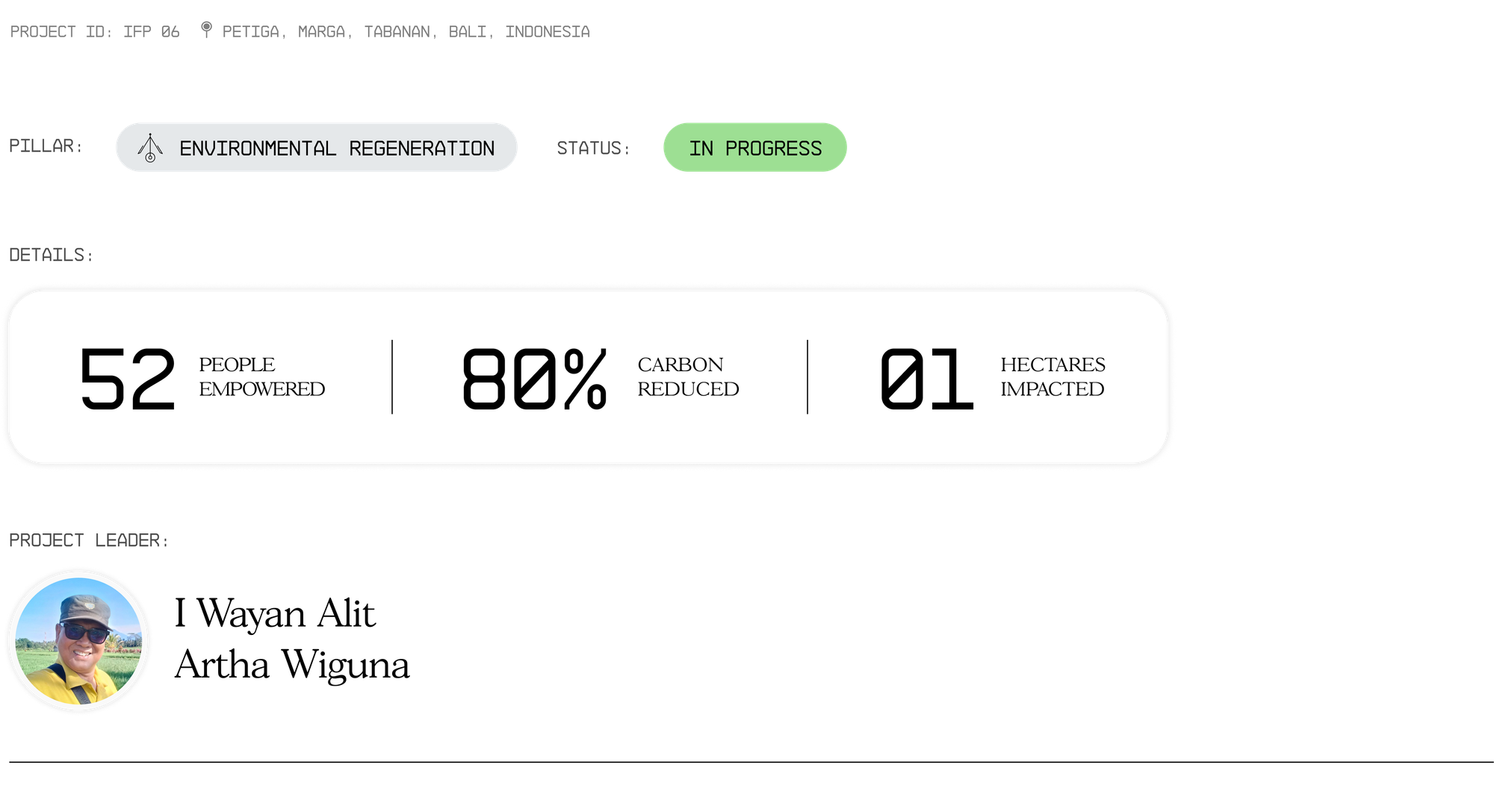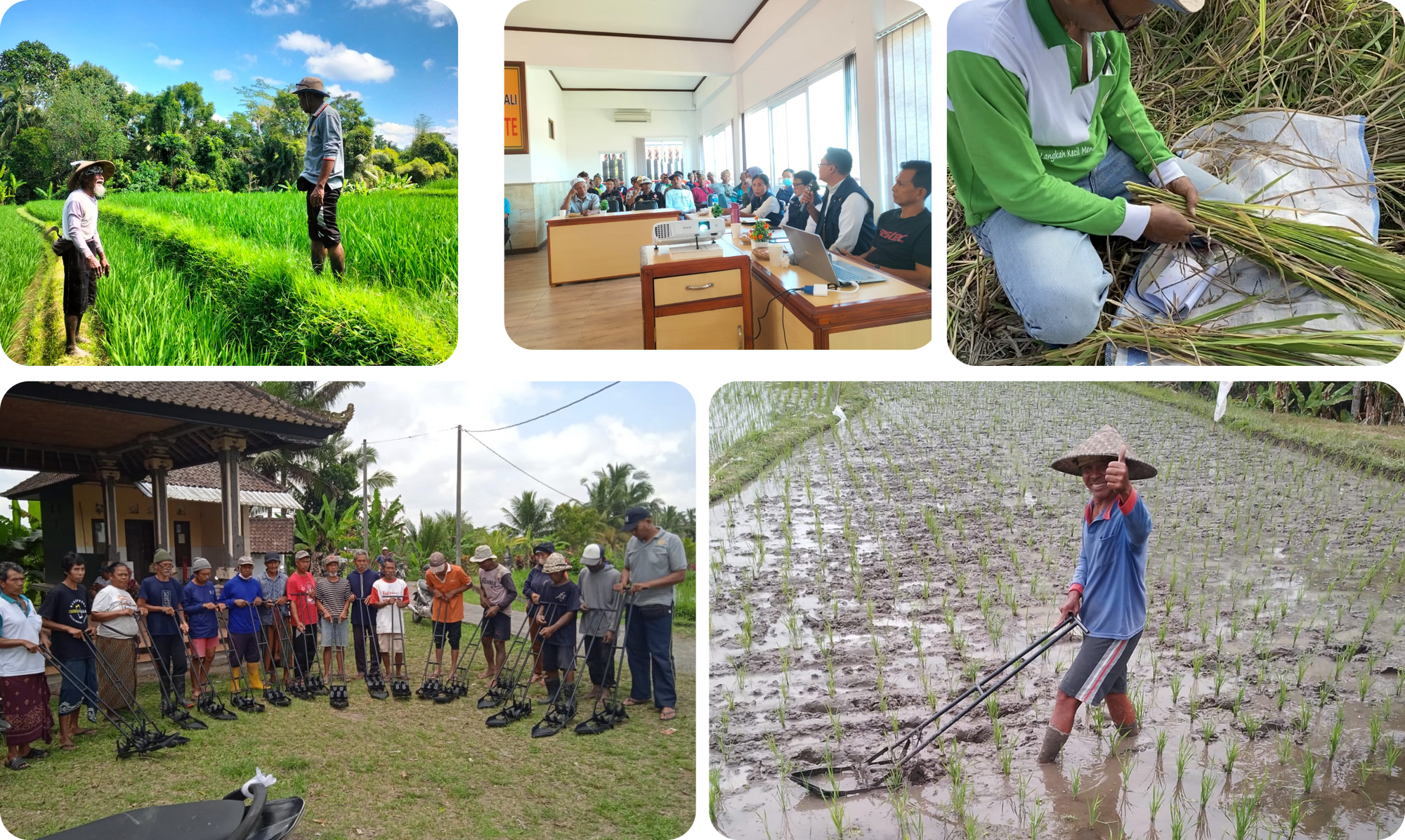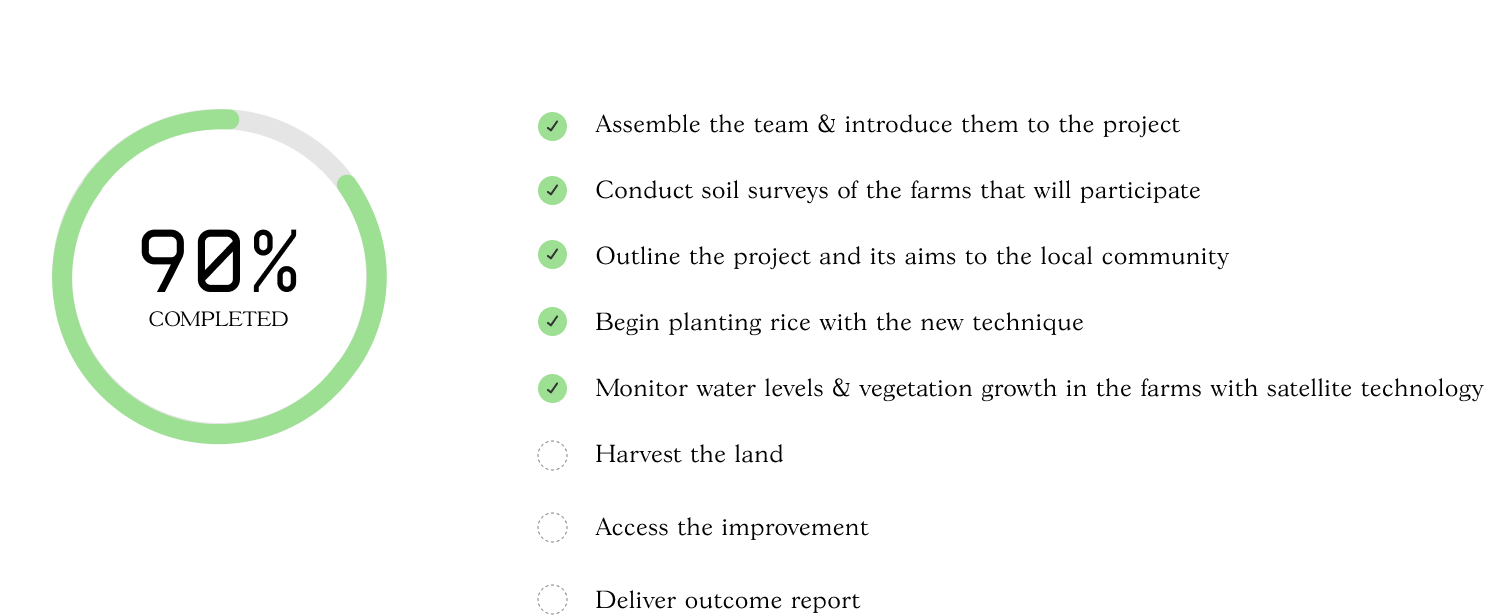Scaling: adapting traditional balinese irrigation techniques to reduce greenhouse gas emissions


MISSION
This environmental regeneration project aims to revolutionize rice cultivation in the Bangli Regency, Bali. There are a host of issues associated with traditional Balinese irrigation techniques, including high greenhouse gas emissions, such as methane. Quantum Temple aims to tackle this through collaborating with local Balinese farmers to implement an adaptive irrigation regime and utilize weed control devices. The mission is to substantially reduce greenhouse gas emissions, enhance grain yields by optimizing the growing conditions for rice plants, and employ satellite monitoring and gas analyzer technology. This technology will measure greenhouse gas emissions and evaluate the effectiveness of this new cultivation technique.
OBJECTIVES

PROJECT SUMMARY
Each village in Bali has a subak water irrigation system to manage the rice fields, comprising comprises multiple rice-farming communities within a specific region. The subak is recognized by UNESCO as central to Bali’s cultural landscape for marrying the spiritual, natural and human worlds, and is governed by a hierarchy of farmers and priests tasked with system management and maintenance. It is essential to Balinese life, yet not environmentally sound.
This is where our project comes in. We aim to present an alternative from the traditional flooding method through collaborating with 48 farmers at the Subak Bene fields. The project will harness an adaptive intermittent regime that is satellite-monitored to reduce greenhouse gas emissions, while farmers will use devices to reduce weed growth in the experimental fields and improve grain yields. The innovative adaptive intermittent flooding holds immense promise, optimizing crop yields and aligning with environmentally-friendly practices. It cuts water usage and greenhouse gas emissions, fosters soil health, and bolsters fertilizer retention to fortify rice crops against diseases and pests and extreme weather conditions. By implementing the water-saving technique of Alternate Wetting and Drying (AWD), these farmers not only contribute to global environmental efforts but also reap the rewards of bountiful harvests.

Members of Subak Bena undergoing training, receiving tools for rice planting and counting the rice plants.
BUDGET:


MILESTONES:


LINKED PROJECTS:
This is the second time we have worked with the farmers of Subak Bena. Learn about the first Pilot project, which involved 18 farmers.
